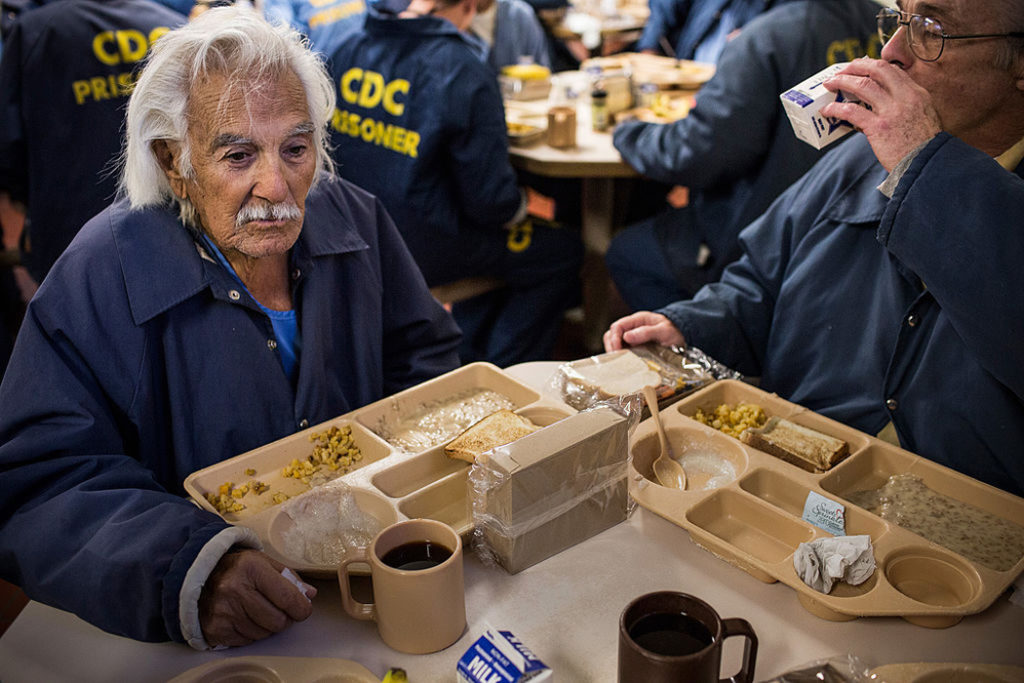The Long Price of the War on Crime

The horrors of the war on crime (thanks Bill Clinton, as well as so many others of both parties) mean that lots of nonviolent offenders are going to grow old in prison. They are already aging and prisons are going to turn into old folks home for Black people who sold a little weed in 1986.
Jose Saldana: Good evening everyone. It’s always an honor to talk to people about the work that the Release Aging People in Prisons campaign does. I am the director of RAPP, and I’m also formerly incarcerated. About two and half years ago I was released from New Haven State Prison after thirty-eight years of incarceration. And when I walked out of prison, I realized that I should have had company. Some of the men I was leaving behind should have been walking out with me, but instead they would likely die inside. It was this urgency that caused me to become passionate about this movement to end mass incarceration, and to approach the mission in a very realistic way: by trying to get men and women who have already languished in prison for three and four decades—some forty-five years, forty-seven years—home to their families. So they could spend the rest of their lives at peace, with some type of dignity.
RAPP advocates for two bills that would do just that. The elder parole bill is a bill that legislates that everyone who has served fifteen years would automatically be entitled to a parole interview. This doesn’t guarantee automatic release, but at least gives these men and women some degree of hope. Secondly, the Fair and Timely Parole bill transforms the release process of the New York State parole board, which has for decades been another entity designed to add layers of punishment on top of punishment. The parole board’s supposed to evaluate whether a person is fit to return back to their families and community, but instead, they perpetually punish people for crimes that were committed four or five decades ago. So these two bills would transform the legal system and correct some of the injustices that were created by racist policies of mass incarceration.
Whole discussion is very good. There are so many problems with the criminal injustice system and this is just one of them. It’s a terrible, racist system for a terrible, racist nation.


